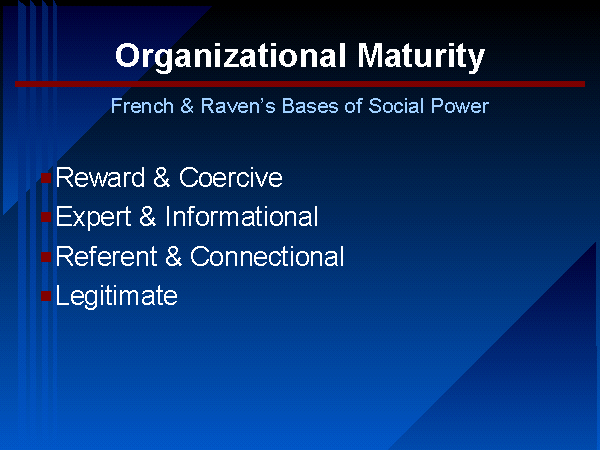





 Notes:
Notes:
Speaking of organizational maturity, consider the seven bases of social power as set forth by French and Raven. Organizations are social constructs and their actions are governed by social power.
Reward and coercive powers are the opposite ends of a continuum. They are the "rawest" form of power. Interestingly, they rely upon a superior/subordinate relationship. Without such a relationship neither rewards nor punishments can exist: If an individual is perfectly able to control the impact of their own actions upon themselves, the results cease to be rewards and punishments. Instead, they are merely results.
To a large degree, the distinction between expert and informational power is grounded in the difference between tacit and explicit knowledge. Individuals with skills and knowledge in their heads that are valued by others are experts. Those who control access to explicit knowledge have informational power. Both of these forms of social power are being subjected to the forces of change in the cyberage.
In some respects, referent power is a superset of expert power, in which broader power is ascribed to an individual in light of specific expertise or attributes he or she posesses. By contrast, connectional power results not from what one knows or possesses but, rather, from whom one knows or with whom one is associated.
Legitimate power is that which is commonly accepted within a culture by convention. For example, kings and queens may have legitimate power simply because heredity has been the means by which power has customarily been conveyed.















